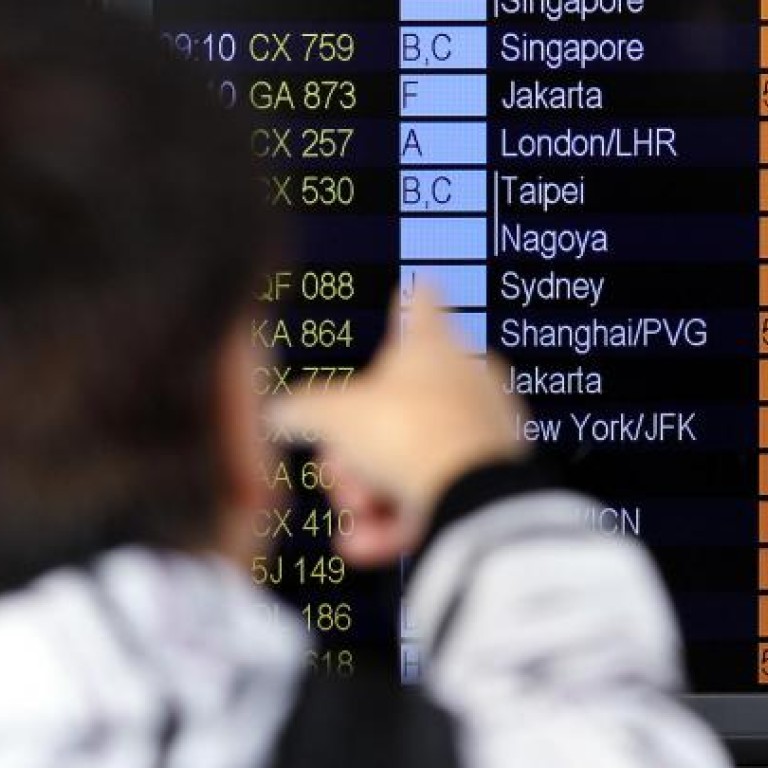
Modern travel: the best ways to get a discount
Travel brochures, once a common sight, are now likelier to be found in a museum than a living room.
Over the past decade, booking a break has evolved into a cutthroat race to the best products for the cheapest price. We trawl websites that churn flight prices in seconds, take advice from strangers (TripAdvisor now has more than 72 million reviews left by holidaymakers) and check prices at the same hotel from several sources. And, perhaps most importantly, we think ahead. (Cathay Pacific's flights to Bangkok on February 9 for Lunar New Year are already sold out.)
But while we've essentially become our own travel agents, tour operators are still a part of the industry. Hata (the Hong Kong Association of Travel Agents) has hundreds of members, and many holidaymakers and businessmen opt to let someone else do the legwork. Graham Elsom of Concord Travel says that while his firm is not always the cheapest, when it comes to a busy period, such as Lunar New Year, travellers still benefit enormously from his service.
"Everyone enjoys the scouting around to some extent, but it does take a huge amount of time," Elsom says. "It amazes me that people are willing to book online with a complete unknown." He adds that travel agents have the added bonus of carrying weight with airlines, cruise operators and hotels. In a recent case, Concord won a customer and his wife US$1,000 in compensation after they went on a cruise and found the ship to be substandard. "I doubt he would have got anything had he complained directly," Elsom says.
But while service is undoubtedly important, for many modern travellers, cost is king. Can agents really compete?
If you try to book the flights and the hotel directly, the airfare comes in at HK$3,780, and three nights at the hotel for HK$3,198, for a total of HK$6,978.
Analysts at eMarketer reported in September that 148.3 million travel bookings are now made online each year, although brand hotel websites (such as Sheraton) still capture about 65.4 per cent of such bookings. While the likes of Expedia and Travelocity attract a lot of traffic, they have only 19.5 per cent of the share of where the actual money is exchanged. This suggests customers use the websites for information about prices and availability of bookings, but pay elsewhere.
However, a third way has emerged, which seemingly combines the convenience of a tour operator with the cheapness of buying online. Smartphone apps, such as Hotel Tonight, are enabling busy travellers to book hotels through their mobile phones. The service alerts users to last-minute deals on hotels where a general manager might decide to steeply discount room rates if occupancy rates are low. In theory, users can fly to a city and then check the app to find an edited list of rooms at top-tier hotels for a cut-rate price, and then book on the spot over the phone.
With Hong Kong having an insanely high mobile phone penetration rate (averaging over two phones per person), this could be the perfect solution.
"When a tourist is already at his destination, it's highly inconvenient to call around or drive or walk around to various hotels to find the best hotel, and travel operators generally can't process bookings at the last second," says Jared Simon, Hotel Tonight's chief operating officer and co-founder. "Apps offer the convenience of a curated list of the top hotels that absolutely have rooms available right now, many times at fantastic discounts."
While Hotel Tonight has already been downloaded by 3.5 million people in two years, it is still to be rolled out in wider regions, meaning holidaymakers in Asia are still waiting to use this technology. But Simon says its arrival is inevitable.
"Twenty years ago, a travel agent package was the best way to book a holiday, because for all practical purposes, it was the only way to book a holiday," Simon says. "But today the mobile as a travel-booking medium is here to stay."
